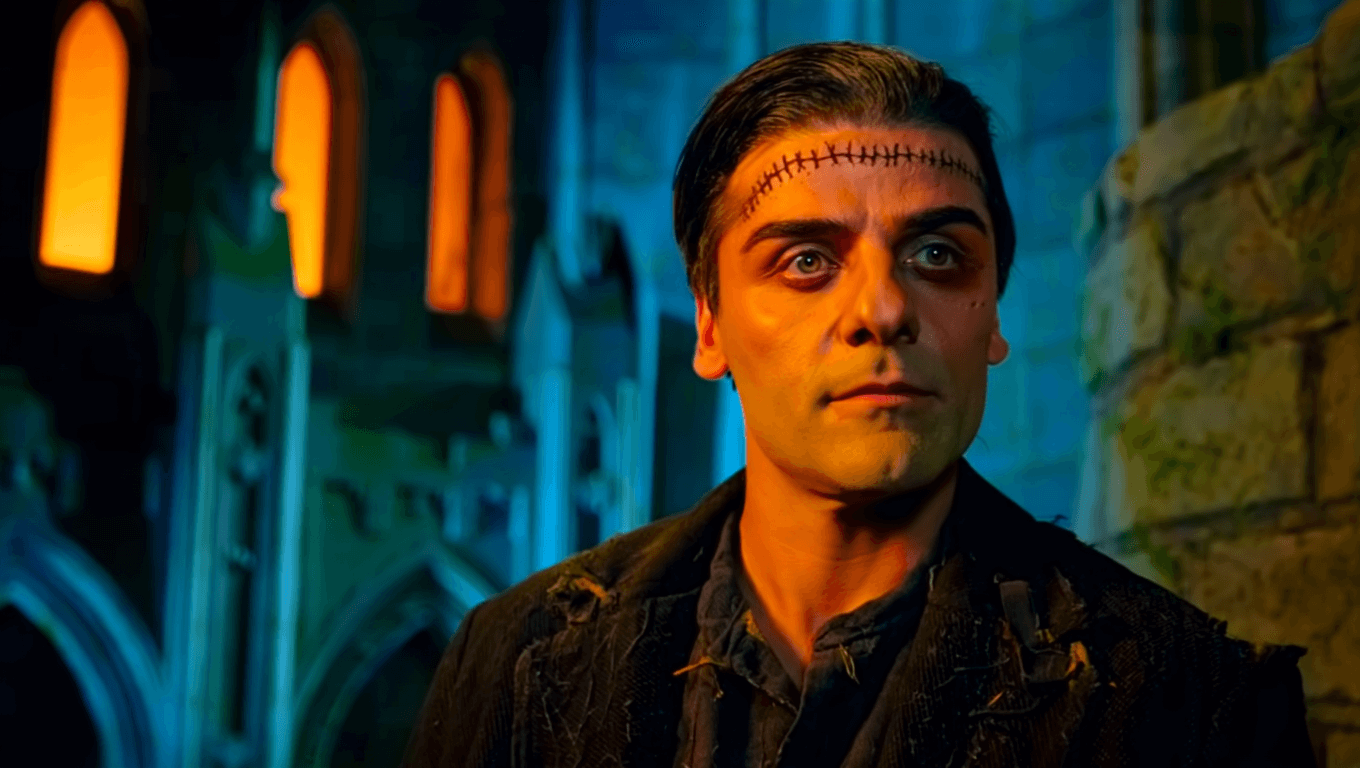Guillermo del Toro’s Frankenstein arrives on Netflix on Nov. 7. The Oscar-winning director is defying Hollywood’s rush toward AI. His bold stance makes headlines as the 149-minute film expands to theaters nationwide this weekend. Del Toro has declared he’d “rather die” than use generative AI.
🔥 Quick Facts:
- Netflix Release: November 7, 2025 globally on the streaming platform
- Star Cast: Oscar Isaac, Jacob Elordi, Mia Goth, Christoph Waltz lead the ensemble
- Theatrical Run: Limited theatrical release began October 17 before Netflix premiere
- Festival Debut: World premiere at Venice Film Festival 2025 on Aug. 30
- AI Stance: Del Toro says zero AI will ever enter his filmmaking process
What Happened: Del Toro’s Gothic Reimagining Arrives
Frankenstein represents del Toro’s most ambitious project in over a decade. He wrote and directed this epic gothic science fiction adaptation based on Mary Shelley’s classic 1818 novel. The film had its world premiere at the Venice Film Festival on August 30. Limited theatrical runs began in select cities on October 17. Now it reaches mainstream audiences globally on Netflix starting Nov. 7.
The director reimagines Victor Frankenstein as a brilliant but dangerous creator. Oscar Isaac plays Victor with the intensity of unchecked ambition. Jacob Elordi delivers a haunting performance as the creature itself. Mia Goth, Christoph Waltz, and Charles Dance fill supporting roles. The runtime stretches to 149 minutes, giving del Toro space for his signature visual storytelling.
“Oscar winner Guillermo del Toro reimagines Mary Shelley’s classic tale of a brilliant scientist and the creature his monstrous ambition brings to life.”
Del Toro has been working on Frankenstein for years. He called it “a project I’ve worked on for six years.” The 2025 film carries his trademark visual language. Dark cinematography, creature design, and emotional depth define every frame.
Why This Matters: An AI-Era Defiance
Del Toro’s most provocative statement comes about artificial intelligence. Just days ago, he declared he would “rather die” than use generative AI. The 61-year-old filmmaker doubled down during interviews promoting Frankenstein. He emphasized his commitment to human craftsmanship over algorithm-generated content for his entire remaining career.
The timing feels intentional. Hollywood faces mounting pressure to adopt AI tools. Every studio weighs speed and cost savings AI offers. Del Toro explicitly rejects this trend. He frames AI adoption as fundamentally opposed to authentic filmmaking. His stance parallels the film’s themes about unchecked technology.
Del Toro explained his perspective on Victor Frankenstein’s character. He connected it to “tech bros” creating without considering consequences. Del Toro said: “He’s kind of blind, creating something without considering the consequences and I think we have to take a pause and consider where we’re going.” This critique of thoughtless innovation extends to AI deployment in filmmaking.
He further elaborated: “My concern is not artificial intelligence, but natural stupidity.” Del Toro suggested that human carelessness poses bigger threats than the technology itself. His refusal to use AI feels like a principled stand against an industry racing toward convenience.
The Details: Cast, Release Strategy, Critical Reception
Netflix secured global distribution rights for Frankenstein. The platform prioritizes prestige content alongside blockbusters. A three-week theatrical window gave del Toro’s film a cinema experience first. Now the streaming release democratizes access across 180+ countries. The R rating ensures mature audiences find the content.
| Details | Information |
| Netflix Release Date | November 7, 2025 |
| Runtime | 149 minutes |
| Rating | R (Restricted) |
| Director/Writer | Guillermo del Toro |
| Main Cast | Oscar Isaac, Jacob Elordi, Mia Goth |
| Production Companies | Mexico & United States co-production |
Critical reception has leaned positive overall. Rotten Tomatoes shows an 86% critics score from early responses. Reviewers praise the visual design and Jacob Elordi’s creature performance. Some critics note the film’s slow pacing as intentional rather than problematic. Del Toro’s commitment to practical effects and handcrafted visuals impressed journalists.
Several outlets highlighted the film’s emotional core. The creature isn’t pure monster but a tragic figure seeking connection. This nuance separates del Toro’s version from past interpretations. Viewers can expect gothic atmosphere, stunning set design, and philosophical questions about creation itself.
What To Watch For: Awards Momentum and Cultural Impact
- Awards season consideration heading into 2026 ceremonies and nominations
- Netflix viewership data in first weekend on the platform starting Nov. 7
- International audience reaction beyond traditional del Toro fan base expansion
- Jacob Elordi’s performance potentially launching him toward supporting role recognition
- Del Toro’s AI statements sparking continued industry debate through film circles
Del Toro’s Frankenstein arrives at a cultural inflection point. The film itself wrestles with technology and human ambition. Its creator refuses to deploy AI in making it. Few filmmakers have taken such a public stand recently. This creates compelling narrative symmetry.
Can Del Toro’s AI Stance Change Industry Conversations?
Del Toro knows his position feels provocative in modern Hollywood. Yet he seems committed regardless of professional pressure. The question becomes whether other acclaimed directors follow his example. Will Frankenstein’s success validate his approach or prove outlier status?
The film provides a case study in analog craftsmanship. Every creature feature relies on practical makeup, puppetry, and set design. No algorithms generated the creature design. No AI wrote dialogue or composed music. Human hands, brains, and vision shaped everything viewers will see on Nov. 7. That deliberate choice feels increasingly radical in the current moment.
What draws you most to Guillermo del Toro’s work: his visual style, his defiant values, or the stories he chooses to tell?
Sources
- Variety – Recent interviews on del Toro’s AI philosophy and Frankenstein adaptation
- Deadline – Production details, cast information, and director statements
- Netflix – Official film description and release scheduling information
Similar posts:
- Jacob Elordi Spent 10 Hours Daily In 42 Prosthetics For Frankenstein – Here’s Why It Works
- Inside del Toro’s 30‑year Frankenstein: Venice debut Aug 30 and Netflix’s theatrical gamble
- Guillermo del Toro’s Frankenstein Lands Theaters Oct 17 That Could Flip Oscar Race
- Guillermo del Toro’s Frankenstein hits 86% on Rotten Tomatoes as director refuses to use AI
- Guillermo Del Toro Frankenstein Trailer Lands On Netflix Oct 7 – What Changes Horror Now?

Daniel Harris is a specialist journalist focused on the crossroads of breaking news, extraordinary history, and enduring legends. With a background in historical research and storytelling, he blends timely reporting with timeless narratives, making complex events and ancient myths resonate with today’s readers. Daniel’s work often uncovers surprising links between present-day headlines and legendary tales, offering unique perspectives that captivate diverse audiences. Beyond reporting, he is passionate about preserving oral traditions and exploring how extraordinary stories continue to shape culture and identity.

